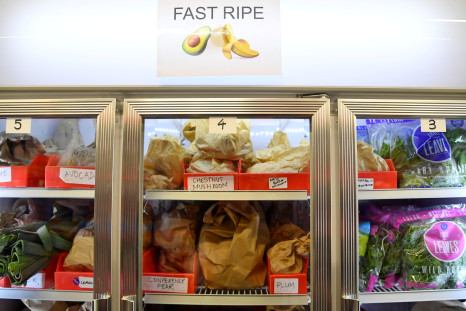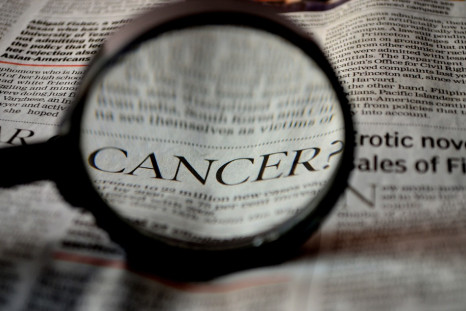Home
> Cancer
Cancer
Hugh Jackman's Sixth Skin Cancer Diagnosis: Why He Was An 'Idiot' For Ignoring Sunscreen
Hugh Jackman shares his sixth basal cell carcinoma scare on Instagram, calling himself an 'idiot' for skipping sunscreen and urging fans to prioritise protection and checks.
Precious Mae Bacudo Dec 12, 2025
Jason Collins Reveals Stage 4 Brain Cancer — What to Know About Deadly Glioblastoma
NBA veteran and first active openly gay player in NBA history, Jason Collins, who played for six teams across his 13-year basketball career, has revealed that he is battling stage 4 cancer called glioblastoma. Here is everything to know about glioblastoma and its deadliness.
Adrienne Martinez Dec 12, 2025
2-Year-Old with Rare Brain Cancer Celebrates Finishing Treatment After $100K Donation from Taylor Swift
Two-year-old Lilah Smoot, diagnosed with a rare brain cancer, has completed her treatment. Her journey, widely followed online, received a major boost when Taylor Swift donated $100,000 to her GoFundMe campaign.
Ashish Shaik Nov 13, 2025
Joe Biden's Fresh Head Bandage And 'Bizarre' Claim Spark New Health Fears
Former President Joe Biden, 82, appears with a head bandage after Mohs surgery. He said his late son 'should've been president, not me.'
Kobe Patrick Serinas Nov 11, 2025
Joe Biden's 'Sad' Last Days? Ex-POTUS Walks Slowly Into Restaurant Amid 'Aggressive' Prostate Cancer
Ex-President Joe Biden's frail appearance in a new video has critics claiming he looks 'absolutely lost'. Read the full report on his post-presidency routine.
Earnest Daniel Nicolas Nov 11, 2025
'On It': Trump Responds to 'Dilbert' Creator Scott Adams' Plea for Medical Help Amid Brutal Cancer Battle
US President Donald Trump has intervened after 'Dilbert' creator Scott Adams publicly sought his help to secure a schedule of his delayed cancer treatment.
Trisha Kae Andrada Nov 03, 2025
Cancer Breakthrough: New Light Therapy Safely Eliminates Cancer Cells in Just 30 Minutes, Study Finds
Scientists have developed a light-based cancer therapy using LED light and tin nanomaterials that kills tumours in 30 minutes without harming healthy cells.
David Unyime Nkanta Oct 27, 2025
Kate Shemirani Daughter's Cause of Death: Why Is The Coroner Raising Serious Concerns?
Paloma Shemirani died after rejecting chemotherapy; the coroner cited her mother Kate Shemirani's influence as a major contributing factor.
J. Alas Oct 03, 2025
Why Did WWE Fans Rage As Triple H And Stephanie McMahon Met Donald Trump For Cancer Mission?
Triple H and Stephanie McMahon joined Donald Trump at the White House for a paediatric cancer initiative — but WWE fans weren't impressed. Discover what sparked the outrage.
Tanmay Puri Oct 02, 2025
Is Your Morning Cereal As Dangerous As Bacon? Experts Warn Ultra-Processed Foods Are Linked To Cancer And Dementia
New research reveals ultra-processed foods increase cancer risk by 2% and dementia risk by 25% per 10% intake increase. Learn which everyday foods pose the biggest threat to your health.
David Unyime Nkanta Aug 11, 2025
Kelley Mack's Brave Battle With Rare Brain Cancer Inspires Global Awareness
The Walking Dead star Kelley Mack, 33, died from diffuse midline glioma, a rare and aggressive brain cancer. Her public battle raised awareness and inspired calls for research.
Giuliano de Leon Aug 06, 2025
Mustang Bio Stock Jumps 180% After FDA Grants Orphan Drug Status to Brain Cancer Drug
Mustang Bio stock surged over 180% on Monday after the FDA granted its brain cancer drug candidate an orphan drug designation.
Niloy Chakrabarti Jul 08, 2025
Quick Facts About Julian McMahon: Secret Cancer Battle, Cause of Death, Final Message to His Daughter and More
Julian McMahon, star of Charmed and Nip/Tuck, has died aged 56 following a private cancer battle. Read about his cause of death, family tributes, and his touching last message to daughter Madison.
Andrea Trinidad Jul 05, 2025
New Study Warns Tattoos May Raise Cancer Risk by 21%—Especially If You Use Red Ink
A major Swedish study has linked tattoos to a 21% rise in lymphoma risk. Experts say it's time to rethink tattoo safety and push for stronger ink regulations. Learn what it means for your health.
David Unyime Nkanta Jun 19, 2025
Here's Why Steve Cohen's Point72 Recently Shelled Out Over $100M for Two Biopharma Stocks
Billionaire investor Steve Cohen invested over $100 million in two biopharma stocks, one of which has rallied over 90% in the past one month.
Niloy Chakrabarti Jun 10, 2025
New AI Can Analyse Your Selfies To Predict Cancer Survival Chances – And It's Shockingly Accurate
A new AI tool, FaceAge, analyses selfies to estimate biological age, which, according to a recent study, is a stronger indicator of cancer survival than actual age.
Vinay Patel May 13, 2025
Quick Facts On John Cena's Cancer Diagnosis: 'Sobering' Wake-Up Call Spurs Skin Health Campaign
The wrestler's story highlights the importance of early detection and daily sunscreen use for all men's health.
J. Alas May 13, 2025
Michael Bolton Brain Cancer: What Is Glioblastoma, What Are the Symptoms and Can You Prevent It?
Poprock legend Michael Bolton, 72, recently opened up about his cancer diagnosis and what his symptoms were— but what is glioblastoma, the disease killing 10k Americans yearly?
Andrea Tode Jimenez May 01, 2025
'Wicked' UK Mum Lied About Cancer to Scam Wealthy Partner, Blew 'Treatment Money' on Spa Days Instead
A mother of two, Laura McPherson, deceived her wealthy partner into giving her over £24,000 by falsely claiming she had terminal cancer.
Vinay Patel Mar 13, 2025
69-Year-Old Dies in Rare Case of Catching Aggressive Liver and Lung Cancer From Organ Donor
Arizona patient dies after contracting donor's lung cancer, exposing rare transplant risks and screening challenges.
Vinay Patel Jan 07, 2025
Burning Concerns: New Study Links Scented Candles to Increased Cancer Risks
Recent studies show scented candles may emit harmful substances that can lead to respiratory problems and cognitive decline.
Andrea Tode Jimenez Dec 09, 2024
Top Hospitals For Glioblastoma Treatment: Finding The Best Care
Treatment typically begins with neurosurgery. Complete tumour removal is crucial, as total resection provides significantly better survival
Nadia Kohler Dec 06, 2024
AI Detects 13 Types Of Cancers With Remarkable Accuracy
A new AI system detects 13 cancers with near-perfect accuracy, raising hopes for earlier diagnoses and better treatment options.
Vinay Patel Jul 02, 2024
Doctor Is Cancer-Free After Using World's First 'Drug Before Surgery' Treatment He Helped Discover
Australian cancer expert fights back and survives aggressive brain tumour with his own experimental treatment, offering hope for future patients.
Vinay Patel May 16, 2024
UK's Gen Z Too Sick To Work Due To 'Mental Health' Reasons Is 'Harming The Economy'
The study also highlights how mental health issues can even force young adults into lower-paid jobs or unemployment.
Sadhna Yadav Feb 27, 2024
Study: Air Pollution Increases Chances Of Breast Cancer By 45%, Prostate Cancer By Up To 28%
Breast cancer is the most common form of cancer.
Sadhna Yadav Feb 27, 2024
New MedTech Funding To Predict Diseases And Make Treatments Available To UK Patients
The UK government has awarded medtech funding to eight UK medtech companies which are developing pathbreaking tests and AI detection tools for faster treatment of life-threatening diseases, reducing the burden of NHS.
Pratiti Nath Feb 23, 2024
Deaths Due To Cancer In UK To Rise By 53% By 2050
Cancer remains one of the most formidable health challenges worldwide.
Sadhna Yadav Feb 05, 2024
Scientists Name Everyday Products That Are Putting Women At Risk Of Breast Cancer
A team of researchers have named almost 1000 chemicals, found in food and beauty products, that increase the risk of breast cancer.
Danielle Summer Jan 23, 2024
University of California Scientists Unleashes AI to Predict Chemotherapy Resistance in Cancer
The study, led by Dr Trey Ideker, a professor in the Department of Medicine at UC San Diego School of Medicine, showcases the potential of artificial intelligence in unravelling the complexities of cancer drug responses.
Pragati Singh Jan 19, 2024
Pages
- 1
- 2
- 3
- 4
- 5
- 6
- 7
- 8
- 9
- NEXT






























